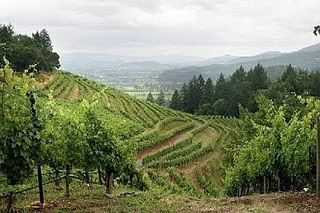CAP:The Common Agricultural Policy is a system of European Union agricultural subsidies and programmes.The CAP combines a direct subsidy payment for crops and land which may be cultivated with price support mechanisms, including guaranteed minimum prices, import tariffs and quotas on certain goods from outside the EU. Reforms of the system are currently underway reducing import controls and transferring subsidy to land stewardship rather than specific crop production. Detailed implementation of the scheme varies in different member countries of the EU.
BSE: Bovine spongiform encephalopathy, commonly known as mad-cow disease (MCD), is a fatal, neurodegenerative disease in cattle, that causes a spongy degeneration in the brain and spinal cord. BSE has a long incubation period, about 4 years, usually affecting adult cattle at a peak age onset of four to five years, all breeds being equally susceptible. In the United Kingdom, the country worst affected, more than 179,000 cattle have been infected and 4.4 million slaughtered during the eradication programme.
GM FOODS: Genetically modified (GM) foods are foods derived from genetically modified organisms. Genetically modified organisms have had specific changes introduced into their DNA by genetic engineering, using a process of either Cisgenesis or Transgenesis. These techniques are much more precise than mutagenesis (mutation breeding) where an organism is exposed to radiation or chemicals to create a non-specific but stable change. Other techniques by which humans modify food organisms include selective breeding (plant breeding and animal breeding), and somaclonal variation.
GREEN REVOLUTION: Green Revolution refers to the transformation of agriculture that began in 1945, largely due to the life work of Norman Borlaug. One significant factor in this revolution was the Mexican government's request to establish an agricultural research station to develop more varieties of wheat that could be used to feed the rapidly growing population of the country.
The importance of the agriculture.
Posted in on 11:53 by luuxeobilingue
Agriculture is important. Before, it was more important, it has lost importance, but today is even, because the agriculture provides employment. About 45% of the world’s workforce was employed in the farming. Food production continues to rise and yields per hectare have increased. Trade in agricultural products has increased. Agriculture provides the basis of many manufacturing and service industries such as food and a variety of services.
Join words and definitions
Posted in on 9:45 by luuxeobilingue
1.Arable : f. the cultivation of crops.
2.Commercial: d. the products are sold to make a profit.
3.Intensive: a. high input and yield per unit area.
4.Nomadie: g. farmers moved seasonally with their herds.
5.Extensive: e. low input an yield per unit area.
6.Pastoral: b. reaning animals.
7.Sedentay: h. farmers remain in the same place throughout the year.
8.Subsistence: c. the products are consumed by the cultivators.
A) KEY WORDS
Posted in on 8:58 by luuxeobilingue
Look for the meaning of :
-Crops (cultivos) : a pounch in many birds and some lower animals that resenbles a stomach for torage and preliminary maceration of food.
-Cattle (ganado) : domesticated bovine animals as a group regardless of sex or age.
-Relief (relevo) : the terrestrial relief makes reference to the forms that has the terrestrial bark or litosfera in the surface.
-Soil (tierra) : material in the top layer of the surface of the earth in which plants can grow. Agricultural soil.
-Labour (trabajo): productive work.
-Farmer (agricultor) : a person who operates a farm.
-Yield (cosecha) :production of a certain amount you cultivate.
-Herd (manada) : a group of cattle or sheep or the other domestic mammals all of the same kind that are herded by humans.
-Seeds (semillas) : each one of the part that it origin to a new plant.
-Input : things that used to produce something. (Seeds)
-Output : profit of the production. (Corn)
-Crops (cultivos) : a pounch in many birds and some lower animals that resenbles a stomach for torage and preliminary maceration of food.
-Cattle (ganado) : domesticated bovine animals as a group regardless of sex or age.
-Relief (relevo) : the terrestrial relief makes reference to the forms that has the terrestrial bark or litosfera in the surface.
-Soil (tierra) : material in the top layer of the surface of the earth in which plants can grow. Agricultural soil.
-Labour (trabajo): productive work.
-Farmer (agricultor) : a person who operates a farm.
-Yield (cosecha) :production of a certain amount you cultivate.
-Herd (manada) : a group of cattle or sheep or the other domestic mammals all of the same kind that are herded by humans.
-Seeds (semillas) : each one of the part that it origin to a new plant.
-Input : things that used to produce something. (Seeds)
-Output : profit of the production. (Corn)
Suscribirse a:
Comentarios (Atom)








